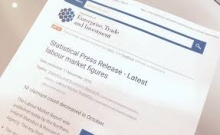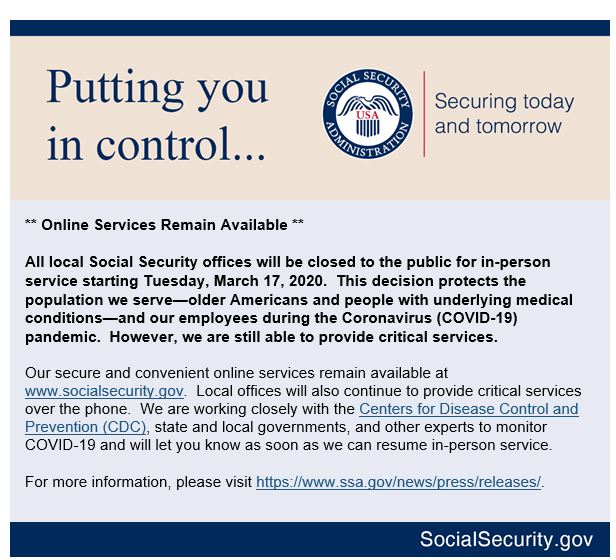Work TV
Watch our TV Channel dedicated to the ‘World of Work’. Explore our video library for informative videos featuring career opportunities at leading companies, franchising opportunities, further education and recruitment professions and their services.
Simon Collyer
Northern Ireland Communities Minister Releases £200,000 for Coronavirus Community Fund
CORONAVIRUS - Communities Minister, Deirdre Hargey MLA, shown in the picture has announced that she is providing £200,000 match funding to Community Foundation NI’s (CFNI) Coronavirus Community Fund.
The new fund is being used to support older people and other issues emerging from coronavirus. Grants of £1,000 are available however, applications for up to £2,500 of emergency funding to community organisations working with older people (aged 50 and over) to help them to deliver support around emerging issues relating to the virus, will be considered.
Minister Hargey said: “My Department is proud to see the proactive approach being taken by our colleagues in the Voluntary and Community Sector and I commend CFNI on their very quick response to the emerging crisis. This £400,000 fund will help to ease pressure for some of our most vulnerable citizens.”
Earlier today the Minister brought together key partners to outline urgent measures for protecting and supporting communities in the face of COVID-19, and to lead and co-ordinate the response on the ground.
The Voluntary and Community Sector Emergencies Leadership Group was co-chaired by the Department and the Red Cross, with support and input from local government, other departments and agencies, regional and local level community organisations and delivery groups, Neighbourhood Renewal leads and social enterprise partners.
Minster Hargey explained: “The collective leadership of government and grass roots community organisations working together has never been more important. My Department is taking a three-pronged approach to supporting the Voluntary and Community Sector response to COVID-19.
“We are focusing our efforts on maintaining existing community support by bringing in new levels of flexibility in our grant systems. I am also bringing forward a Community Support (Contingency) Fund – a significant funding stream for local delivery of services in our communities and regional infrastructural support.
“The meeting this morning is the third part of this response – working together with the Red Cross and other partners will allow us to co-ordinate effort and communications and maximise our impact on the ground. These measures will be supported by the temporary changes we have brought in across the benefit system to protect vulnerable people and ensure that our services are responding to the rising need across our society.”
Joanne McKenna from the Red Cross said: “Today we established the basis for the sort of collaboration and collective action that will be needed more than ever over the coming weeks and months. We are committed to bringing together shared knowledge, expertise and resources to direct our energies where they are needed most. By co-ordinating our efforts at regional and local levels we will be able to empower and equip communities to deal with this crisis and meet need where they find it.”
ABC Comment, have your say below:

Renters to Be Protected From Eviction, Say's the PM During Coronavirus Scare
RENTING - Renters to Be Protected From Eviction, PM Says
The government is bringing forward emergency legislation to protect private renters from eviction, Boris Johnson has said.
Tenants were "worried sick" they might not be able to pay rents if they fell ill, Labour leader Jeremy Corbyn said at Prime Minister's Questions.
The government had been urged to do more for families, workers and tenants affected by coronavirus.
Mr Corbyn urged the PM to protect private renters in "the interests of public health", adding Britain's 20m private renters were "worried sick" about missing payments if they became ill, lost pay or had to self-isolate.
The government has announced a radical package of measures to protect renters and landlords affected by coronavirus. As a result, no renter in either social or private accommodation will be forced out of their home during this difficult time.
Emergency legislation will be taken forward as an urgent priority so that landlords will not be able to start proceedings to evict tenants for at least a three-month period. As a result of these measures, no renters in private or social accommodation needs to be concerned about the threat of eviction.
Recognising the additional pressures the virus may put on landlords, we have confirmed that the three month mortgage payment holiday announced yesterday will be extended to landlords whose tenants are experiencing financial difficulties due to coronavirus. This will alleviate the pressure on landlords, who will be concerned about meeting mortgage payments themselves, and will mean no unnecessary pressure is put on their tenants as a result.
At the end of this period, landlords and tenants will be expected to work together to establish an affordable repayment plan, taking into account tenants’ individual circumstances.
To support this announcement the government has worked with the Master of the Rolls to widen the ‘pre-action protocol’ on possession proceedings, to include private renters and to strengthen its remit. This will support the necessary engagement between landlords and tenants to resolve disputes and landlords will have to reach out to tenants to understand the financial position they are in.
The government will also issue guidance which asks landlords to show compassion and to allow tenants who are affected by this to remain in their homes wherever possible. The National Housing Federation and Local Government Association have welcomed the new support for social renters and made clear that no one should be evicted because of the coronavirus.
This important step on buy to let mortgages ensures parity of support, further to the announcement yesterday that the government made for private mortgage holders. We are also announcing that those who have benefited from a government backed Help to Buy equity loan will be offered interest payment holidays if they are struggling to pay due to coronavirus.

Image: Housing Secretary Robert Jenrick MP.
Housing Secretary Robert Jenrick MP said:
The government is clear – no renter who has lost income due to coronavirus will be forced out of their home, nor will any landlord face unmanageable debts.
These are extraordinary times and renters and landlords alike are of course worried about paying their rent and mortgage. Which is why we are urgently introducing emergency legislation to protect tenants in social and private accommodation from an eviction process being started.
These changes will protect all renters and private landlords ensuring everyone gets the support they need at this very difficult time.
Ben Beadle, Chief Executive of the National Residential Landlords association said:
Landlord groups welcomes government support. We recognise the exceptional circumstances and we will work collaboratively with
ABC Comment, have your say below:

Universal Credit Advances Fraud
UNIVERSAL CREDIT LEGAL - The Department for Work and Pensions (DWP) has identified nearly 100,000 Universal Credit claimants that it suspects may have claimed an advance fraudulently, according to the National Audit Office (NAO). In total, these advances are worth an estimated £100-£150 million.
The DWP detected increased levels of suspected fraud soon after it first allowed people to apply for advances online in July 2018. Prior to this change, claimants could only apply for advances over the phone or in person.
The number of suspected fraudulent cases peaked at over 15,000 a month in July 2019 but then dropped significantly from September 2019, down to just over 2,000 a month by December 2019. This reduction followed the introduction of a requirement to attend a face-to-face interview before receiving an advance, which the DWP believes has been highly effective in combating fraud.
The DWP told the NAO that the primary objective of enabling online-only applications for advances in the first place was to alleviate hardship faced by claimants during the first assessment period (the five-week wait for their first Universal Credit payment). It also wanted to save an estimated £21 million a year by reducing the staff time involved in processing manual claims. The DWP told the NAO that it was aware of the risk of fraud when it decided to make advances available online. However, it could not provide any evidence that it had considered the risk of fraud when deciding to do so.
By December 2019 fraud investigators had taken an initial look at around a third of the almost 100,000 suspected cases of advances fraud. On this basis, the DWP suspects nearly all the almost 100,000 cases identified to be fraudulent. By the end of December 2019, the DWP had imposed £1 million of administrative penalties to over 4,000 individuals and six cases have resulted in a court sentence. The DWP continues to work through the remainder of the 100,000 the cases. However, work by the NAO indicates there may well be nearly 50,000 additional suspicious cases, yet to be identified by DWP, worth up to an extra £74 million.
The DWP believes it will get back most of the estimated £100-£150 million. However, this recovery may take years and some of the debt may have to be written off. The DWP could not tell the NAO how many fraudulent advances are already being repaid or how quickly it will reclaim all the fraudulent advances. The DWP has promised that any genuine victim, who was deceived into making a Universal Credit claim or had their identity stolen, can have their legacy benefits restored and has identified 189 cases to be returned so far.
ABC Comment, Have your say below:

Evictions Have Been Stopped - Another ABC Prophecy Fulfilled
EVICTIONS - Have been stopped in liberal California for a few days a go and latterly the UK government has just followed suit.
When the economy was normal, evictions have fallen to 7% of renters from a prevvious 9% - but that is still a huge percentage.Think of the human suffering of just one eviction?
The high rate of evictions has been a direct result of government policy freezing LHA for six years to slash the welfare state (to fund tax cuts to the rich and pay back the bankers) and because in the UK we have a lettings market dominated by Buy-to-Let landlords forcing up rents due to an accommodation shortage. To many, these people are seen as parasites simply riding on the backs of the poorest in society. People who do little more than claim ownership of the land and who are like private parking companies that provide little real benefit to society and who do little work in relation to the vast profits them make.
40,000 homes in London are empty and landlords are making such huge profits at the top end of the market due to quantitative easing (printing money chasing a limited supply of property assets) there is no need to even bother with tenants. London is surrounded by a ring of rural land. Property can only go one way, this is up. Physically up we mean not just financially in value, with massive growth in high rise office blocks and accommodation.
Crisis responds to Government announcement of a complete ban on evictions & additional protection for renters.
Today, Wednesday 18th March, the Government has brought forward emergency legislation to suspend new evictions from social or private rented accommodation while this national emergency is taking place.
Responding to the news, Matt Downie, Director of Policy and External Affairs, said: “This is a hugely welcome announcement.
While we await the detail, we hope this means anyone served an eviction notice will not be left facing homelessness as a result of the pandemic.
“We appreciate that this needs to be a workable solution for renters and landlords but would stress that any repayment plan must be affordable for tenants.
If someone loses their job because of the outbreak and has no income coming in, they cannot be faced with intolerable levels of debt once these emergency measures are lifted.”d.”
While we await the detail, we hope this means anyone served an eviction notice will not be left facing homelessness as a result of the pandemic.
“We appreciate that this needs to be a workable solution for renters and landlords but would stress that any repayment plan must be affordable for tenants.
If someone loses their job because of the outbreak and has no income coming in, they cannot be faced with intolerable levels of debt once these emergency measures are lifted.”d.”
ABC Comment, have your say below:

Simon Collyer is On RT TV Evening News Tonight
TV - Simon Collyer is appearing on RT TV evening news today. Not the greatest interview but you can catch Simon at 10:15 onwards this evening. The RT TV evening news airs at 7:00 PM, 9:00 PM and 10:00 PM.
You could catch the last slot if you are in the UK. Please just click here: https://www.rt.com/on-air/rt-uk-air/
ABC Comment, have your say below:

UK Employment at Record High but For How Long
The UK employment rate in the three months to January 2020 was estimated at a joint record high of 76.5%, 0.4 percentage points higher than a year earlier and 0.3 percentage points up on the previous quarter.
The UK unemployment rate in the three months to January 2020 was estimated at 3.9%, largely unchanged compared with a year earlier and 0.2 percentage points higher than the previous quarter.
Estimated annual growth in average weekly earnings for employees in Great Britain in the three months to January 2020 was 3.1% for both total pay (including bonuses) and regular pay (excluding bonuses).
In real terms (after adjusting for inflation), annual growth in both total pay and regular pay is estimated to be 1.5% in the three months to January 2020, down from a recent peak of 2.0% in the three months to June 2019.
In real terms (after adjusting for inflation), annual growth in total pay is estimated to be 1.4% and annual growth in regular pay is estimated to be 1.8% in the three months to January 2020.
There were an estimated 817,000 vacancies in the UK for December 2019 to February 2020; this is 19,000 more than the previous quarter but 30,000 fewer than a year earlier.
ABC Comment, have your say below:

Northern Ireland Labour Market Statistics
NORTHERN IRELAND - Labour market statistics.
The labour market statistics were published today by the Northern Ireland Statistics and Research Agency.
NI unemployment rate increased over the quarter and decreased over the year
- The NI seasonally adjusted unemployment rate (the proportion of economically active people aged 16+ who were unemployed) for the period November-January 2020 was estimated from the Labour Force Survey at 2.4%, one of the lowest rates on record. The unemployment rate increased over the quarter by 0.1 percentage points (pps) from the lowest rate on record and decreased by 1.1pps over the year. The annual change was statistically significant, i.e. the recorded change exceeded the variability expected from a sample survey of this size and was likely to reflect real change.
- The NI unemployment rate (2.4%) was below the UK rate (3.9%), the European Union (28) rate (6.2%) for December 2019 and the Republic of Ireland rate (4.8%) for December 2019.
Employment rate decreased over the quarter and increased over the year
- The proportion of people aged 16 to 64 in work (the employment rate) decreased over the quarter by 0.1pps and increased over the year by 1.3pps to 72.3%, one of the highest rates on record. Although recent changes were not statistically significant, the employment rate was significantly above rates in 2018.
Economic inactivity was unchanged over the quarter and decreased over the year
- The economic inactivity rate (the proportion of people aged from 16 to 64 who were not working and not seeking or available to work) was unchanged over the quarter and decreased over the year by 0.5pps to one of the lowest rates on record (25.9%). Although the annual change was not statistically significant, the economic inactivity rate was significantly below rates in 2017.
Confirmed redundancies increased over the year
- The number of confirmed redundancies (3,045) in the most recent 12 months was 29% higher than in the previous 12 months (2,359). NISRA, acting on behalf of the Department for the Economy, received confirmation that 23 redundancies took place in February 2020.
- A total of 99 redundancies were proposed in February 2020, a decrease on the previous month’s total of 424.
Total Employee Jobs increased over the quarter and year
- Estimates from the Quarterly Employment Survey December 2019 indicate that private sector jobs decreased over the quarter (-0.1% or -430 jobs) and increased over the year (1.2% or 6,810 jobs). Public sector jobs increased over both the quarter and the year. The number of public sector jobs is estimated at 211,670 and is 7% below its highest level in September 2009.
- The total number of employee jobs increased over the quarter (1,790 jobs) and over the year (10,730 jobs) to 784,140; the highest number of jobs on record (in the seasonally adjusted series).
- Construction was the only broad industry sector to experience a decrease in employee jobs over the year, although this decrease was marginal at 0.2% (-50 jobs). The services sector, which accounts for 81% of jobs in NI, accounted for the majority of the annual growth (93%). This is consistent with trends since recovery began in 2012.
Commentary
- Businesses and households continued to report relatively strong labour market conditions.
- Businesses reported via the Quarterly Employment Survey that employee jobs increased over the quarter and year to a record high of 784,140 jobs. This continues a period of quarter on quarter growth from December 2015. The service and manufacturing sectors reported growth in jobs over the year while the construction sector experienced a marginal decrease. The services sector continues to account for the majority of growth in jobs.
- Estimates from the Labour Force Survey showed a marginal decrease in the employment rate, a marginal increase in the unemployment rate, and no change in the economic inactivity rate over the quarter. The unemployment (2.4%) and economic inactivity (25.9%) rates were both lower than one year ago while the employment rate (72.3%) was higher than one year ago.
- The continued improvements in the NI labour market are in keeping with the UK experience. It is worth noting, while the NI unemployment rate continues to be the lowest of all the UK regions, NI had the second lowest employment rate and highest economic inactivity rate.
ABC Comment, have your say below:

The Palace Has Responded to our Complaint About the Right Honorable Sir Iain Duncan Smith's Knighthood
THE MONARCHY - The ABC wrote to the Queen and Simon Collyer said that the Right Honorable Sir Iain Duncan Smith's Knighthood was considered a stain on the monarchy.
It was explained in a reply from Buckingham Palace that while the Prime Minister does not have a direct role in proposing names for consideration. a list of recommendations for the award or removal of honours is presented to The Queen by the Prime Minister.
Any appeal would need to go the Honours and Appointments Secretariat, Cabinet Office, Room G39, 1 Horse Guards Road, London, SW1A 2HQ
ABC Comment, have your say below:

Government Exposes Claimants Unnecessarily to Infection and Death
CORONAVIRUS - The government are still requiring benefit claimants to attend meetings with their Jobcentre Plus, Work Coaches in England and Wales. whilst in Northern Ireland, this practice has been stopped.
Work Coach is a fancy title. Companies stopped using the Jobcentre as the main means of recruiting back in the '80s and '90s. Before the advent of Internet job boards which emerged in 1995, the Jobcentre or Labour Exchange was the hub for companies looking for blue-collar workers and for filling clerical jobs. Jobcentre staff had a lot of knowledge of the local economy and who was firing and who was hiring. That has all changed.
Visiting the Jobcentre is a pointless ritual and many more educated claimants know much more than the advisers in many cases who are supposed to council them.
How many Work Coaches have ever set-up and run a business, most have worked for the DWP for decades. So, exposing claimants to unnecessary risks that the working public - who are advised to stay at home - is an example of how the government sees those on PIP, ESA and Universal Credit.
When the government suspended face-to-face meetings for Work Capability assessors it was announced it was to protect medical professionals, not to protect the persons being assessed who already have underlying health issues and are an at-risk group.
Requiring job seekers to attend the Jobcentre while other workers stay at home is a Human Rights issue.
ABC Note: In the US face-to-face meeting have already been stopped.
ABC comment, have your say below:

Coronavirus and Claiming Benefits Northern Ireland
CORONAVIRUS AND CLAIMING BENEFITS NI - Communities Minister Deirdre Hargey MLA today announced measures to ensure the continued delivery of important social security services, in light of the escalating issues around COVID-19.
Explaining further, the Minister said: “I am suspending face-to-face assessments for all benefits for a period of three months. From today, assessments will be carried out by telephone, or by considering medical evidence submitted by post and we are exploring ways to make this system more flexible.
“Anyone who has an appointment for assessment scheduled will be contacted to cancel their appointment. Anyone who does present for an appointment at an assessment centre will be offered the choice of either going ahead with the assessment or leaving and having their assessment completed over the telephone or by Paper Based Review.”
Commenting on appointments at Jobs & Benefits Offices (JBO), the Minister said: “With effect from today, all routine appointments at our JBOs will be postponed to protect those visiting and working in the offices. Anyone due to sign-on will be excused from signing. For those already receiving benefits, they will continue to receive their payments and Work Coaches will communicate with them via their on-line journal, the phone or will simply re-schedule appointments for a later date. The Department has already announced that nobody will be penalised as a result of not attending the office and that remains the case.”
The Minister said that new claims to Universal Credit will still be made on-line and added: “Additional telephony support will be made available to help people with their new claim. All follow up activities will be managed on-line or over the phone. Nobody will have to visit the office at any stage of making their new claim, except in exceptional circumstances. Payments will still be processed as usual and over 95% of new claims should continue to be paid when due.
“Similar arrangements have been put in place to avoid anyone claiming Discretionary Support from having to call into their local office as part of that claim.
“Also with immediate effect, all routine appointments for the Make the Call Service, compliance and benefit review interviews will cease and the Access to Work Programme will be suspended.”
The Minister concluded: “My priority is to protect the health and well-being of those using and delivering these vital services across our communities. By taking some pragmatic and precautionary steps now, I want to do all I can to support our health service as they seek to delay the further outbreak of this awful disease. Everyone will appreciate these are very challenging times and I want to reassure people I will do whatever is needed to maintain the safe delivery of these services.
“Each of our 35 local JBOs remain open and staff will be at their desks. However, we do not want people to make unnecessary visits, unless they have been instructed to do so or in an emergency situation. These measures will help reduce risk to vulnerable people, whilst continuing to provide financial assistance to those in need. My Department will monitor the situation and keep everyone informed of developments as they happen.”
ABC Comments, have your say below:

























